TVTP Grantee Stories
Close-Out Reports and External Evaluations
TVTP Symposium
Targeted Violence and Terrorism Prevention (TVTP) Grant recipients develop innovative programs and resources that other prevention providers and communities can replicate or build on. This webpage showcases programs, tools and resources, and accomplishments from past awardees. These tools are aimed at making it easier for prevention practitioners to conduct their work while reaffirming DHS’s commitment to the transparency of this program. The following information is from grantees with results to share. DHS will continuously update this site as additional grantee results are reported.
Note
Grant recipients must adhere to strict terms and conditions to develop and implement these programs. They are required to provide quarterly and annual reports documenting their processes, activities, and outputs. The Federal Government does not directly oversee the implementation of programs. References to any other non-federal entities are for informational purposes only. References to external entities do not constitute an endorsement of the nonfederal entity, its information, website, or products by the U.S. Department of Homeland Security or Federal Government. Websites and resources were authored by the grantees and do not reflect the views of DHS or the federal government.
TVTP Grant Project Websites
Please find the links and descriptions to TVTP Grant project websites below.
| Program Logo | Grant Program Description |
|---|---|
 | The AWARE & CARE website provides information about warning signs and indicators which could signify a person is in crisis and in need of immediate intervention. The website also provides information about adverse life experiences which can have negative effects on a person’s health and well-being. Contact information is provided to assist persons exhibiting threatening behaviors, to help persons in crisis, to address mental health or substance use disorders, to obtain critical support services, and to learn about available community resources and support. |
 | Bay Area Targeted Violence and Terrorism Prevention Grant Program Visitors to the website will find that they amplify available online resources and add specific regional grant- funded resources such as links to register for virtual or in person training and meetings. Examples include no cost virtual Terrorist Use of the Internet Training and Train the Trainer classes, Cross Sector Behavioral Threat Assessment and Management in-person training classes, navigating content eLearning and also navigating violent online content curriculum for K-12 youth and teachers, Instructor Guides and Student Workbooks for Targeted Violence. |
This online curriculum provides law enforcement and first responders with information on detecting warning signs of violent extremism, understanding reporting processes in Ohio, and employing effective intervention strategies. The training primarily focuses on resources for rural and suburban communities in Ohio. | |
Image

| The TVTP/FY21 project flyer and TVTP brochure can also be accessed on the landing page, that incorporates information about all Grants funded by US. Department of Homeland Security to Global Peace Foundation. |
Image
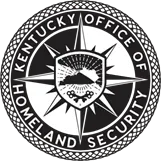
| Kentucky Office of Homeland Security KOHS (Kentucky Office of Homeland Security) offers a two-hour briefing on Targeted Violence and Terrorism Prevention. It educates participants on warning signs and risk factors for violence and terrorism. The briefing can be presented in-person or virtually and tailored to the audience. |
Image
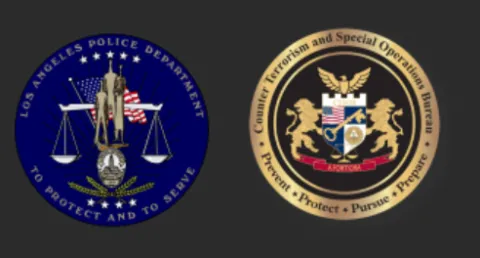
| Los Angeles Police Department (LAPD) is dedicated to training the public on mass attack prevention. With experience in law enforcement, mental health, and public safety, LAPD seeks to provide a free, comprehensive training program to equip individuals with the knowledge and skills to both prevent acts of mass violence from occurring and respond effectively during critical situations |
 | Mediation Center for the Costal Empire: Training Opportunities The Mediation Center provides Targeted Violence Awareness sessions along with de-escalation, active bystander, and organizational conflict training informed by prevention best practices. The Mediation Center delivers this support to organizations serving the coastal Georgia community across several sectors. |
 | One World Strong: ResilienceNet ResilienceNet's purpose is to provide a convenient mobile application for people who require support, such as survivors of mass traumas, refugees, veterans, individuals at risk of radicalization to violence, and their loved ones, to connect with the services they need. In partnership with the Arizona State University McCain Institute's Prevention Practitioner's Network, services include directories of licensed mental health practitioners, organizations, community connections, violence prevention resources, and educational materials, with the goal of making these resources and materials all conveniently available on a single platform. |
Image

| Operation250 is a collection of lesson plans and supplementary materials built as part of the prevention programming offered to schools and communities and also made available to educators and stakeholders who are interested in integrating prevention programming into their classrooms. The lessons cover a range of topics within the online safety and anti-hate space, for age groups from elementary through high school. Lessons and resources are continually added to this page and you can connect with the organization about these resources at: contact@operation250.org. |
Image

| Out Boulder County dba Rocky Mountain Equality In 2022, Rocky Mountain Equality (RME) began actively engaging in plans to increase community safety and combat hate, not only in Boulder, but across the Rocky Mountain region. In October 2022, RME receive funding from the Center for Prevention Programs and Partnerships (CP3) to dedicate staff time and resources to this vitally important work, establishing a Liaison Program to train representatives from local law enforcement to better prevent and respond to acts of hate-based violence in Colorado. |
Image
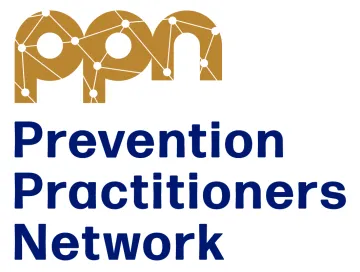
| Prevention Practitioners Network The Prevention Practitioners Network (PPN) of the Eradicate Hate Global Summit is a national network of 1,300+ interdisciplinary professionals dedicated to using public health approaches to prevent hate-fueled violence. Its directory connects 200+ relevant resources in real-time during crises. PPN also publishes practice guides to assist organizations in their prevention efforts. Contact Neil Saul (nsaul@eradicatehatesummit.org) for more info. |
Image
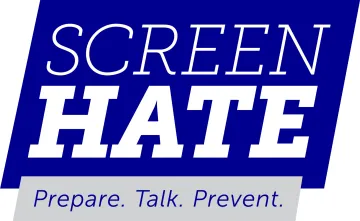
| SCREEN Hate is an online-awareness campaign by the Eradicate Hate Global Summit that provides caregivers and concerned adults with the knowledge, tools, and resources they need to keep youth safe from hateful messaging online that could incite violence. The website provides leading research, tips for discussing these topics with youth, and resources for prevention and assistance. |
Image
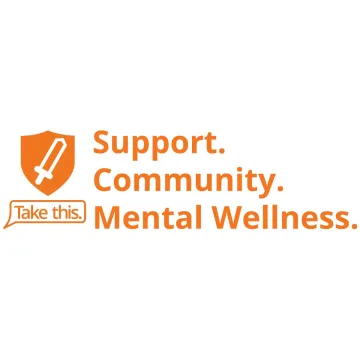
| Take This, Inc. has created an Extremism in Games primer. It's a resource to help understand how extremists exploit games to spread their message. The primer is intended for the gaming industry, policymakers, and non-academic audiences. It explains how extremists use games to radicalize and recruit. The primer is not exhaustive but gives an introduction to the terms and processes discussed in this area of research. |
Image

| Texas Department of Public Safety The Texas Department of Public Safety is dedicated to working with community partners throughout the state to prevent terrorist attacks and reduce the threat of targeted violence through training and education. The Texas Targeted Violence and Terrorism Prevention program aims to increase prevention opportunities by educating a wide range of representatives on targeted violence and terrorism indicators, reporting options, and available resources within their communities. |
 | University of Rhode Island: Courageous RI Courageous Rhode Island works to prevent violent extremism through advancing media literacy, active listening, kindness and compassion, and community engagement. An engaged community of individuals recognize, analyze, and resist harmful forms of expression and communication through collaboration on programs that include: Courageous Conversations, online dialogues that bring people together for dialogue and discussion; a Professional Development program, which offers lesson plans and a supportive online community for educators who help students apply media literacy competencies in middle school, high school, and college; and a Youth Media Contest, where students win prizes for their creative and inspiring media messages. |
Image

| Community-based training on the warning signs for violence and strategies for bystanders to prevent violence. The training covers an overview of current targeted violence statistics, examples of behavioral warning signs, and resources for individuals seeking to report concerning behavior. |
Image

| University of Illinois at Chicago Violence Prevention Training Website This website was established by the University of Illinois at Chicago (UIC) Department of Psychiatry with support from a CP3 grant and subject matter experts from UIC, DePaul University, and Loyola University Chicago. The trainings and resources have been designed to support community members and practitioners working in education, mental health, and criminal justice doing violence prevention work. |
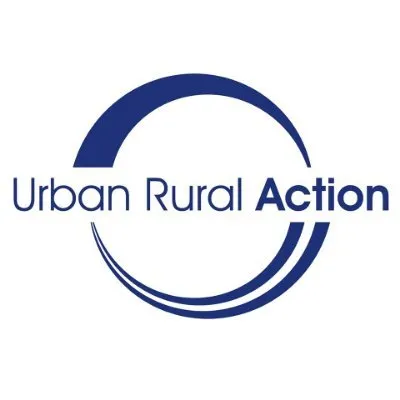 | Urban Rural Action (Pennsylvania) Uniting to Prevent Targeted Violence (UPTV) is a nonpartisan program that brings together 28 Pennsylvanians, known as Uniters, in Adams, Dauphin, Franklin, and York counties to work across divides to prevent targeted violence. The four goals of the program are to:
For more information, email Joe@URAction.org or Kira@URAction.org. |
 | Urban Rural Action’s Uniting to Prevent Targeted Violence (UPTV) program in southeast Wisconsin aims to build a sustainable targeted violence prevention network. This will be done by strengthening access to prevention services and increasing capacity to assess and manage threats. UPTV will build relationships across communities, collaborate with community partners on prevention projects, help form threat assessment and management teams, and raise community awareness of the local prevention network. |
Image
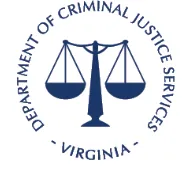
| Virginia Department of Criminal Justice Services Virginia Department of Criminal Justice Services aims to establish, expand, and enhance targeted violence and terrorism prevention frameworks in Virginia. |
| Program Logo | Grant Program Description |
|---|---|
Image

| Building Resilience Against Violent Extremism in Schools Building Resilience Against Violent Extremism in Schools (BRAVE Schools) partners with middle and high schools in Western Massachusetts to proactively prevent violence and build resilience among students and staff. Employing a whole-school approach, the program engages diverse individuals in addressing factors that can impact a positive and safe school climate. Through training and support, a Care Team leads project implementation within each school, involving students and staff in raising awareness and enhancing violence prevention efforts. |
Image
| Building Resilient Communities | Events | Embry-Riddle Aeronautical University The navigating violent content and Critical Thinking Seminar training opportunity focuses on identifying violent online and media messages that could lead to violent radicalization and critically evaluating them to develop strategies to increase community awareness and resilience. |
Image

| Diverting Hate is an organization that examines the ways in which radicalization proliferates online and uses prevention methods to help individuals build resiliency through partnerships with community-based organizations. Diverting Hate employs diversion tactics to disrupt algorithmic radicalization pathways to reduce and/or eliminate the possibility of falling into misogynistic rabbit holes. |
Image

| How2Inform (H2i) was developed to combat online misinformation with navigating violent online content and critical thinking tools and resources. H2i.info provides free access to H2i methodology, articles, books, videos, websites, and more to assist educators and media consumers in identifying and avoiding misinformation. For more information, email How2Inform@lewisu.edu. |
Image
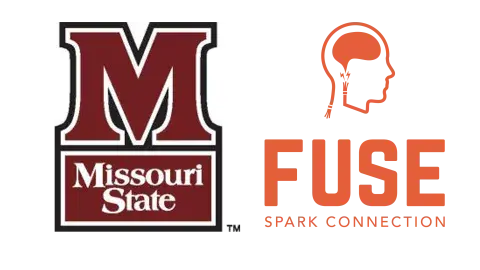
| Missouri State University: FUSE Campaign The FUSE project website houses podcast episodes, a card game, a radicalization education toolkit, and information on project awareness events. The toolkit comprises five interactive modules: identifying radicalization, identifying bias, white supremacist ideology, digital literacy, and deradicalization. |
Image

| Simon Wiesenthal Center - Museum of Tolerance's "Combat Hate Digital Empowerment Workshop" The Combat Hate Training opportunity is designed for youth and suitable for classroom implementation. This 50-minute course fosters critical thinking skills to decode and reject online hate. The training adheres to an online safety curriculum that aligns with digital citizenship standards and builds on essential media literacy skills. Students are taught to apply media literacy questions to a range of real-life scenarios, interpret the impacts of hateful messages, and create an action plan worksheet. |
Image

| University of Maryland’s START and We the Veterans START and We the Veterans have partnered to promote a public health approach to violence prevention. We aim to engage veterans, their families, veteran service organizations, and military family service organizations to foster a violence prevention ecosystem. The program aims to collaborate on primary, secondary, and tertiary prevention programs, and implement proof-of-concept projects consistent with TVTP Promising Practices. |
Image

| Vermont Violence Prevention Project The Vermont Violence Prevention Project (VVPP) elevates violence prevention efforts in Vermont's institutions and employers. The project comprises four core programs: no-cost training for Threat Assessment and Management Teams, a Healthy Communities Symposium, a multimedia Violence Prevention and Response Toolkit, and a Bystander Intervention Training Curriculum. The VVPP aims to create safer communities by promoting knowledge-sharing and collaboration among stakeholders and proactively preventing targeted violence. |
| Program Logo | Grant Program Description |
|---|---|
Image

Image
| Boston Children's Hospital (Massachusetts Area Prevention Framework) A two-year grant from the Department of Homeland Security supported the implementation of the Massachusetts Area Prevention (MAP) framework to reduce mental health problems and increase social belongingness among adolescents through a multi-pronged, evidence-informed, and community-based program. The MAP framework includes expanding a Youth Advisory Board (I-YAB), implementing school-based belongingness programming, and establishing a multidisciplinary service coordination team to support the connection of at-risk youth to supportive community-based services. |
Image

| Columbia University: Project Belonging Project Belonging is a program that connects middle and high school students across the U.S. It offers online training, incubates student-led projects, and showcases them in a metaverse exhibit designed by Project Belonging Staff at Teachers College, Columbia University. |
Image

| Columbia University: Reimagine Resilience Program Reimagine Resilience is a multimodal training program designed for educators and educational staff to cultivate resilience in their students, classrooms, and communities as part of a whole-of-society approach to violence prevention. This professional training program draws on Dr. Amra Sabic-El-Rayess' Educational Displacement Theory of radicalization and seeks to build resilience to hate and violent expression by amplifying protective factors — such as social connectedness, non-violent problem solving, and creating cultures of prevention. |
Image
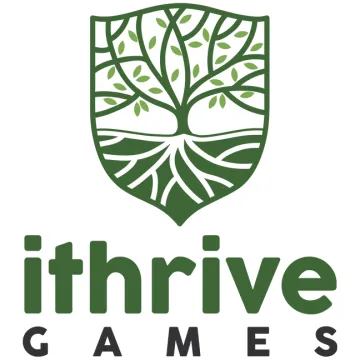
| iThrive Games and CTEC (Center on Terrorism, Extremism, and Counterterrorism) are developing a game-based curriculum to empower teens against radicalization, build resilience, and enhance capacity for Prevention/Countering Violent Extremism. The website provides an overview of the project and shares details on the codesign process with teens and experts. For more information, contact Eghosa Asemota at eghosa.asemota@ithrivegames.org. |
Image
| National Esports Honors Society This page provides a high-level overview of the National Esports Honors Society and serves as the program's central hub. The National Esports Honors Society is an out-of-school-time add-on program for collegiate esports programs, focusing on media and information literacy, peer and intergenerational mentoring, community and civic engagement, and professional development with esports. Programmatic resources will be published over time and made available via this page. For questions or further information, contact at eliot@esportsus.org. |
Image

| The Northern California School of the Arts (Nu Art Education, Inc.) offers classes that integrate theater arts and conflict resolution strategies for students in Sacramento's Title 1 schools. This innovative approach aims to strengthen resistance to targeted violence and terrorism while helping students develop a sense of identity and connection to their community. |
Image

| Parents for Peace, in collaboration with Georgia State University, hosted its first Exit Peer Specialist Training in May and June 2024. This comprehensive training covered violent extremism, negative consequences of involvement, recovery, and reintegration, and working with former extremists. More information regarding this training can be found on the program website. |
Image
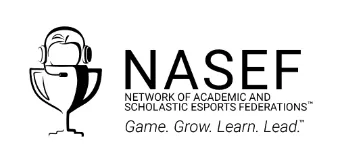
| The Scholastic Esports as Resilient Safe Spaces Program The Scholastic Esports as Resilient Safe Spaces Program is designed to strengthen protective factors against targeted violence and terrorism by gathering young people in a safe, neutral and inspiring esports community. Led by the Network of Academic and Scholastic Esports Federations, the program uses scholastic esports as a vehicle for youth development, college and career pathway identification and readiness, and attention to social-emotional practices. This is done in a dynamic, peer mentoring, adult-supported group (club) setting where students create clubs and participate in scholastic esports competitions to test the members' skills, innovation, and creativity in real-world challenges. |
Image
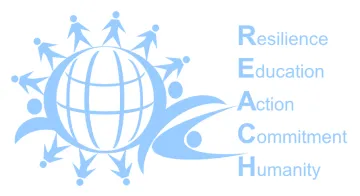
| REACH (Resilience, Education, Action, Commitment, Humanity) is a community-based initiative housed at The University of Texas at El Paso aimed at preventing targeted violence and domestic terrorism. Its core belief is that every individual has the right to live in a safe and dignified environment. The members of REACH are committed to working alongside others to build a world free from violence. Social media, educational videos, and resources related to TVTP are available for students and community. |
| Program Logo | Grant Program Description |
|---|---|
Image

| Behavioral Services Division - Palm Beach County Sheriff's Office Behavioral Service Division Homepage and Palm Beach community resources/services. |
Image
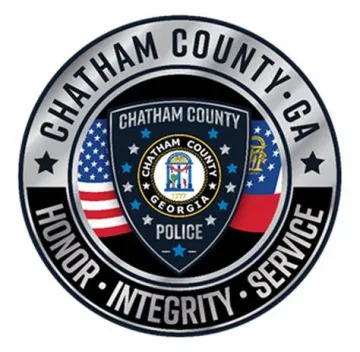
| Partnering with local law enforcement and emergency management, the Chatham Treat Assessment and Management Network developed protocols regarding incidents of violence, increased awareness, and competencies through training, and increased community-based efforts to encourage reporting threats and violent crimes. |
Image

Image
| Expanding MAP into Four Metropolitan Boston School Districts through School-Based Assessment Teams The Multidisciplinary Violence Prevention Core of the TCRC conducts research, intervention development, and capacity building in multidisciplinary approaches to violence prevention., supported by funding from DHS. Their work includes the 1) Massachusetts Area Prevention (MAP) Framework Program, which supports youth at risk for violence and those engaging with hateful ideologies, work with four districts in greater Boston to build 2) Inter-ethic Youth Advisory Boards 3) The Strengths, Needs, and Risks: Assessment & Management Tool (T-SAM) - build the capacity of mental health practitioners to assess and manage risk for targeted violence and terrorism in collaboration with local multi-disciplinary threat assessment teams. |
Image
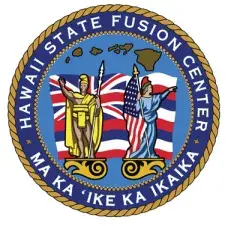
| Hawaii TVTP — The State of Hawaii Office of Homeland Security (HIOHS) and the Office of Homeland Security The state agency charged with preventing terrorism in Hawaii, HIOHS’s whole-of-community strategy to prevent targeted violence includes training on violent extremism; establishing, training, and operating behavioral threat assessment and management teams (TATM); and developing a prevention network that connects the TATM and traditional fusion center partners with community resources. |
Image
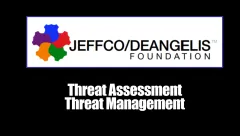
| Jeffco DeAngelis Foundation Threat Assessment Training Threat Assessment Training, designed for nonprofits and other stakeholders, aims to enhance capacity to assess and disrupt threats of violence and radicalization. The training is segmented into four progressive levels from Level 1 to Level 4 (early to advanced). For instance, Level 1 Training focuses on raising awareness of key elements in targeted violence prevention. Level 4 Training involves scenario-based learning with tabletop exercises and role plays, designed specifically for established Threat Assessment Teams, aiding them in identifying gaps and enhancing their processes. |
Image
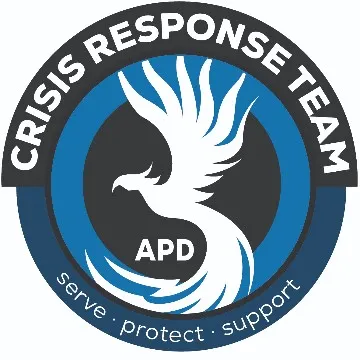
| Mental Health Resources - City of Aurora Mental Health Resources - City of Aurora The City of Aurora's Mental Health Resources page provides information on its Crisis Response Team and Targeted Violence Prevention program, their missions, how to request them, and what to expect. This link also provides links and information to other local resources. |
Image
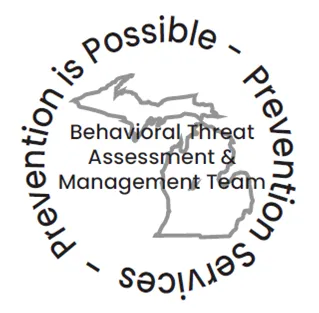
| Michigan State Police Behavioral Threat Assessment and Management Michigan State Police's Intelligence Operations Center (MIOC) has established a multijurisdictional team that follows a public health model to prevent targeted violence and terrorism in the counties of Ingham, Eaton, and Clinton. The funding has also been used to create a Fusion Liaison Officer program that provides training to law enforcement, first responders, and select private sector partners to prevent targeted acts of violence. For more information, contact MSP-FLO@michigan.gov. |
Image
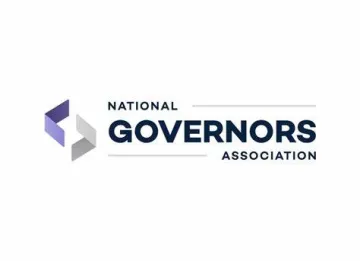
| The State Targeted Violence Prevention: Programming & Key Performance Indicators website is a guide for U.S. state governments as they seek to design and implement holistic targeted violence prevention (TVP) plans and programs. The resource lays out three specific categories of activities for state-level TVP implementation. The first (Preparation) and last (Monitoring) are “back-end” activities to help state governments lay the groundwork for effective programming and sustain those efforts in perpetuity. The middle category (Prevention) follows the public health model of violence prevention and incorporates four levels of prevention – Primordial, Primary, Secondary, and Tertiary – that address community and individual susceptibility to targeted violence. |
Image

| New York State Domestic Terrorism Unit In recognition of the evolving threat environment, including the growing threat of domestic terrorism, New York State participated in the National Governors Association's (NGA's) Policy Academy on Preventing Targeted Violence. The Policy Academy included a multi-agency collaborative planning effort resulting in New York State's first Targeted Violence Prevention Strategy. This strategy employs a multidisciplinary public health approach by engaging a broad group of stakeholders to better understand the relevant risk factors and work to prevent the threat of targeted violence. |
Image
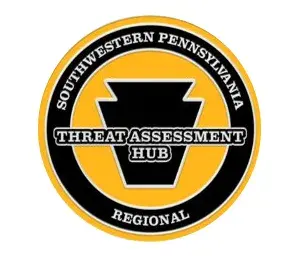
| Pennsylvania Commission on Crime Delinquency Threat Assessment and School Safety The Southwestern PA Regional Threat Hub Portal is a commercially hosted web portal designed to facilitate meaningful interaction between hub participants, hub management, and subject matter experts. The portal enables direct requests to the hub for general information, training, or consultations. Additionally, the portal will host curated, professional content for partners interested in threat assessment resources to include links to PCCD, DHS, and other federal partners. Additionally, the hub portal features expert-recommended content from across academia, research, and health care, as well as a forum to for subject matter experts to discuss recent studies, events, or developments in the fields of threat assessment, threat management, and targeted violence prevention. |
Image

| Rochester Threat Advisory Committee (ROCTAC) ROCTAC is focused on keeping Monroe County safe through community-based intervention approaches for threats, or threatening behavior by an individual; grievance-fueled violence; and online radicalization. |
Image

| University of Hawai’i — West O’ahu The University of Hawai’i West O’ahu is committed to establishing and developing Behavior Intervention/Threat Assessment and Management Teams (BITAMs) tailored to the unique needs of Hawai’i’s diverse population, culture, and environment. Additionally, they aim to address violence prevention using a public health approach to facilitate engagement with community stakeholders relating to BITAMs and bystander intervention, which will inform necessary future steps in creating a bystander program. This program strives to work in conjunction with the broadest set of local stakeholders to create trusted partnerships in order to address and curtail issues before they become threats. Please see this informational video. |
Image
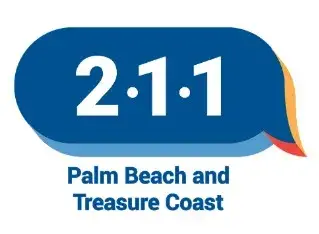
| 211 is a confidential, community helpline and crisis hotline service providing immediate guidance and support for individuals and families who find themselves without answers to problems they may face on a daily basis. |
| Program Logo | Grant Program Description |
|---|---|
Image

| Music In Common's Black Legacy Project (Black LP) Music In Common facilitates dialogue, collaborative songwriting, multimedia production, and performance to bring diverse people together, empowering them against hate. The Black Legacy Project aims to be an innovative musical collaboration to strengthen resistance to violent extremism by fusing music, multimedia, conflict transformation, and person-to-person dialogue and collaboration to support social integration and cohesion. |
Image

| PERIL: Polarization & Extremism Research & Innovation Lab The goal of the VEER program is to support communities with cutting edge tools and skills to build resilience and prevent radicalization. All VEER outcomes center on the goal of building an expanding network of community leaders who have the skills to develop prevention and resilience programs tailored to the needs of their own communities. VEER takes a three-step approach to accomplish this. 1.) Coordinating, developing, and sharing with participants the best practices and tools for building community resilience, using a public health-based approach. 2.) Connecting proven-effective off-ramping and prevention techniques with insight and training into cutting edge new media technologies. 3.) Growing a network of community resilience programs supported by a self-guided online training and resource repository. For more information, please contact perli@american.edu. |
Image

| The Strong Cities Network, in partnership with Boston Children’s Hospital, the University of Illinois Chicago, and the Prevention Practitioners Network, along with inputs from a dynamic, multidisciplinary group of subject matter experts (SMEs), is piloting a model for the development of local multi-actor prevention frameworks in several small and mid-sized cities across the United States, including: Athens, Ohio; Chattanooga, Tennessee; Overland Park, Kansas; Albuquerque, New Mexico; and Stamford, Connecticut. |
Image

| Tuesday's Children (Community Resilience) Leveraging its evidence-based Long-Term Healing Model, Tuesday's Children aims to deliver promising practices and provide personalized guidance along with peer support. This aid is extended to service providers and survivor groups across various U.S. communities affected by terrorism, targeted violence, military conflict, and the ongoing pandemic, to promote connection and long-term healing as a deterrence to extremism. |
Image

| UNO-NCITE is developing an intelligent chatbot to improve the reporting of suspicious activities, aiming to streamline the tips reporting process and prevent terrorism and violence. The project will create and test a chatbot for tips reporting that can be used alone or integrated into existing platforms. |
| Program Logo | Grant Program Description |
|---|---|
Image

| In 2021, the TCRC received another two-year grant from the Department of Homeland Security to create and pilot a clinically useful tool to aid in assessment and management of Targeted Violence and Terrorism risk in a community-based setting. The T-SAM (Targeted Violence & Terrorism Strengths, Needs, and Risks: Assessment & Management Tool) has been created as a clinically useful tool that offers community-based mental health practitioners a collaborative, client-centered approach to the assessment and management of risk. |
Image
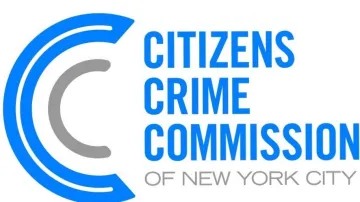
| Citizens Crime Commission of New York and the DEEP Tool Kit The Citizens Crime Commission of New York City is a nonpartisan nonprofit dedicated to preventing the most extreme forms of violence. Using a multidisciplinary approach, this nonprofit aims to create innovative solutions to improve public safety, reduce gun violence, and empower communities. DEEP is a voluntary program designed to help people who are at risk of engaging in extremist violence through the use of psychological and social interventions. |
Image
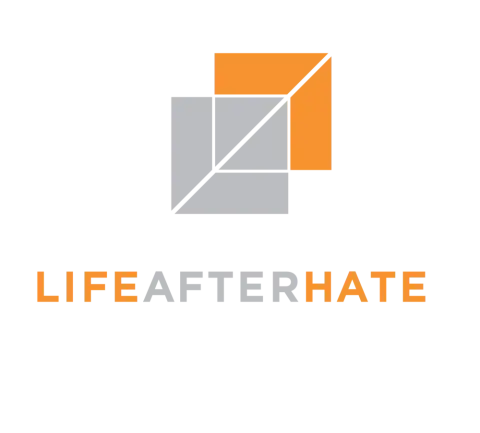
| Life After Hate Violent Far Right Extremism (VFRE) Law Enforcement Training The Violent Far Right Extremism (VFRE) Law Enforcement Training Opportunity is open for registration to law enforcement, corrections, and probation/parole professionals. The program covers the extent of VFRE in the U.S. today, the mechanisms of recruitment and exit strategies for violent far-right movements, and the reasons behind these decisions. It also provides strategies for mitigating VFRE-related violence and criminal activity in local communities. |
Image
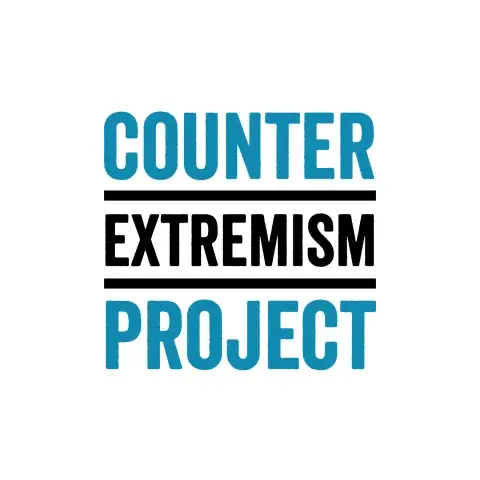
| The Radicalization, Rehabilitation, Reintegration, and Recidivism Network (4R Network) To guarantee that every stakeholder tasked with supervising extremist offenders in-prison and/or in-community in the U.S. has adequate knowledge and access to evidence-based reintegration support mechanisms, the 4R Network aims to establish a sustainable community of practice with cross-cutting relationships and enhanced expertise. Counter Extremism Projects Alternative Pathways Program: Toolkit and course for Addressing Radicalization and Facilitating Rehabilitation, Reentry and reconnection among incarcerated Americans. |
